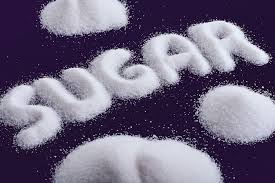Eye catching, shocking, and downright scary, inflammatory blogs written by the “shock jocks” of the food world seem to be everywhere these days. Food Babe writes “Drink Starbucks? Wake Up and Smell the Chemicals” while other bloggers use titles such as “Sugar Will Kill You” and “Death by Sugar.” The most common claim seen today in the blogosphere is that sugar is toxic. Even more reputable publications such as Time magazine are jumping on this claim bandwagon.[1] While most rational adults understand that consuming large amounts of sugar is certainly not good for you there is a lack of understanding of what exactly makes sugar bad for you. Before jumping in to what about sugar is good for you and what is not so good, let’s talk about what toxicity is.
According to the dictionary, toxicity is the sum of adverse effects or the degree of danger posed by a substance to living organisms. It is expressed generally as a dose response relationship involving the quantity of substance to which the organism is exposed and the route of exposure skin (absorption), mouth (ingestion), or respiratory tract (inhalation). Toxicity is classified usually as (1) Acute: harmful effects produced through a single or short-term exposure. (2) Chronic: harmful effects produced through repeated or continuous exposure over an extended period. (3) Subchronic: harmful effects produced through repeated or continuous exposure over twelve months or more but less than the normal lifespan of the organism.[2] In other words the toxicity of a substance is based on the amount of exposure. For example, almonds are considered a healthy snack even though they contain cyanide. Most people would not eat almonds in the amount required to produce toxicity, but it is possible to get cyanide poisoning from this tasty treat.[3]
Sugars are a classification of carbohydrate, a macronutrient essential for life. Your body uses carbohydrates to provide energy and ensure your cells are running smoothly. When people think of sugar they typically think of the white, crystalline substance we use to sweeten a variety of things from coffee, to bakery items, to things like oatmeal. There are many different types of naturally occurring sugars that are present in every day fruits, vegetables and dairy items. These include maltose, lactose, glucose, galactose, fructose and sucrose.[4] While sugar is essentially inert in the human body, it can cause issues when eaten in excess. A diet high in calories from any source; including sugars, fats, and proteins, can lead to weight gain and obesity which causes health complications such as heart disease and Type II Diabetes.
In the early 1900’s the average sugar consumption in the American diet was around 15 grams per day. Today that amount has skyrocketed to around 100 grams of sugar a day. In the late 1980’s the medical community became concerned with a new disease called Non-Alcoholic Fatty Liver Disease (NAFLD) and started to look at links between this and sugar consumption. It has also been suggested that the liver can convert the sugar fructose into a fatty acid called triglycerides, which can damage the liver in high doses sustained over long periods of time.[5] A meta-analysis of studies of over 25,000 Americans from 1999 to 2006 was conducted by medical professionals and scientists looking for links between high fructose consumption and the formation of triglycerides, uric acid and cholesterol. What they found is that in 97% of Americans fructose contributes less energy than any other form of sugar consumed. They also did not find any affirmative correlations between sugar consumption and levels of triglycerides, uric acid or cholesterol. [6] Renowned sugar expert Luc Tappy of the University of Lausanne writes: "Given the substantial consumption of fructose in our diet, mainly from sweetened beverages, sweet snacks, and cereal products with added sugar, and the fact that fructose is an entirely dispensable nutrient, it appears sound to limit consumption of sugar as part of any weight loss program and in individuals at high risk of developing metabolic diseases. There is no evidence, however, that fructose is the sole, or even the main factor in the development of these diseases, nor that it is deleterious to everybody."
While it is wrong to associate sugar with being “toxic” or “poisonous” it is important to note that most sugar containing foods are calorie dense and that limiting consumption of sugary beverages, desserts and cereals should be part of any healthy weight loss plan. America is a culture of overconsumption and sugar is only part of the problem.
[1] “Sugar is Definitely Toxic: A New Study Says.” Time Magazine. A. Park. 2015
[2] Definition: Toxicity. www.businessdictionary.com
[3] “Potential Toxic Levels of Cyanide in Almonds (Prunus amygdalus), Apricot Kernels (Prunus armeniaca), and Almond Syrup.” ISRN Toxicol Journal. N. Chaouali et. Al. 2013
[4] “Background on Carbohydrates and Sugars.” International Food Information Council. https://foodinsight.org
[5] “Too much fructose can damage your liver, just like too much alcohol.” http://sugarscience.ucsf.edu
[6] “Is Sugar really Toxic.” Scientific America. www.scientificamerica.com




